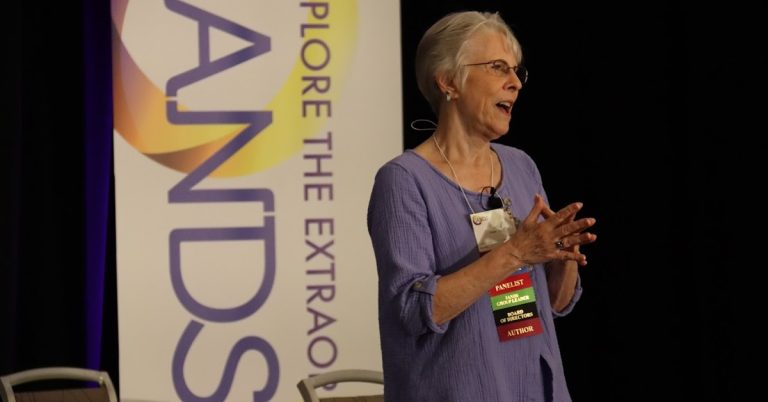How does having a near-death experience, or NDE, affect a person’s relationship with their career? That’s the subject of new NDE research focused on the correlations between near-death experiences and work. And the results of this study illustrate how near-death experiences change the values that determine their relationships with their careers.
Dr. Jamie Gruman, was inspired to study NDE aftereffects after hearing a radio show on the subject in 2017. Gruman, a professor in the Department of Management at the University of Guelph in Ontario, Canada, wanted to explore how NDEs impact careers
Gruman’s work has now culminated in the new study Dying to Work: A Thematic Analysis of How Near-Death Experiences Affect Employees’ Work Lives, penned by Gruman and Akierah D. Binns.
The University of Guelph NDE study, published by the International Association of Management, Spirituality and Religion (IAMSR), explores how NDEs impact the careers of experiencers—their values regarding work, the alignment of their goals and sense of purpose, and more.
Dying to Work is an important step toward better understanding how near-death experiences change people in fundamental ways. It explores how near-death experiences change priorities and goals, and the psychological effects of NDEs over time.
Near-death experiences and work relationships

Gruman and Binns interviewed 14 experiencers for their study, each of whom revealed that their NDEs changed their values regarding work. And in each case, experiencers began seeking new roles that aligned with their newly evolved values.
“Leaders wear two hats,” Gruman says. “There’s an externally focused hat that considers how to stay viable over the long term, but also an internally focused hat that works to build community and culture.”
Perhaps one of the most eye-opening elements of the study is the paradigm shift regarding the importance of money—a core pillar of job satisfaction for most of us.
“A near-death experience really changes people’s approach to finances,” says Gruman in a news story published by the University of Guelph. “After an NDE, relationships are so paramount, and money just disappears in importance.”
Dying to Work offers fascinating insights into how near-death events reshape goals. For instance, in the wake of an NDE, experiencers seek out career changes that align with their new life values.
“There was a recognition of the preciousness of life and the desire to make a difference,” Gruman says. “Many people come out of an NDE willing to change the direction of their lives. This means they want to spend their workdays engaged in alignment with a new purpose, often to spread and cultivate love.”
Lessons on career development we can all take something from
We all should take time to slow things down and reevaluate our priorities with regards to work-life balance. And that’s a key takeaway from Dying to Work, which offers important lessons everyone should be encouraged to consider.
“There’s a time and place to be strategic and there’s a time and place to be a human,” says Gruman.
New to the concept of near-death experiences? we recommend reading about the causes of NDEs, their characteristics, and their aftereffects. You may also want to watch films and documentaries about near-death experiences, too. And if you or someone you know has had an NDE, be sure to read about NDE support content, too.




